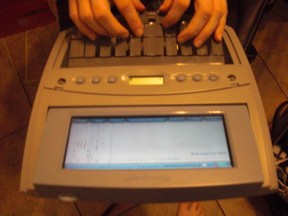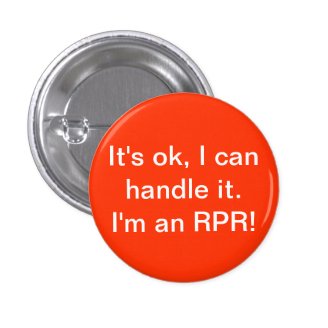I worked as a court reporter for ten years before I finally broke down and took the Registered Professional Reporter exam. I was lucky to live in Florida, one of only about 20 states that don't require the certificate to be a stenographer, so I hadn't needed to take the test before I started reporting.
I wanted to become an RPR because I believe in being the best in my career. But the thought of speed tests freaked me out. How could I ever pass, let alone pass on my first try?
Well, pass on my first try I did, and I learned that my ability to pass or fail the RPR began long before test day.




 Nobody likes to practice. If you're a student, the last thing you want to do is go home and pull out your machine. If you're a working reporter, all you want to do is relax and not even look at your equipment after a long day of depositions or court.
Nobody likes to practice. If you're a student, the last thing you want to do is go home and pull out your machine. If you're a working reporter, all you want to do is relax and not even look at your equipment after a long day of depositions or court.




 How to Learn to Make Money Online Bloggingon 11/08/2015
How to Learn to Make Money Online Bloggingon 11/08/2015
 Funky Retro Fun with the Polaroid Socialmatic Instagram Camera and Accessorieson 01/01/2015
Funky Retro Fun with the Polaroid Socialmatic Instagram Camera and Accessorieson 01/01/2015
 Haunted Florida: The Legend of the I-4 Dead Zoneon 12/07/2014
Haunted Florida: The Legend of the I-4 Dead Zoneon 12/07/2014
 Easy to Make Paw Print Christmas Ornament Kiton 11/25/2014
Easy to Make Paw Print Christmas Ornament Kiton 11/25/2014



Comments
Thanks for your tips! This was pretty helpful.
Thank you!
This is really good information, so I'm pinning it to my Things You Really Need to Know board.
I'm glad for you. They can be tough. Thanks for reading!
Reminds me of the days I used to sit for shorthand exams. Thankfully for me no longer required!
Thank you! And thanks for reading my article even though you're not familiar with reporting :)
I think you've covered just about anything you'd need to know about passing the exam. Great article.